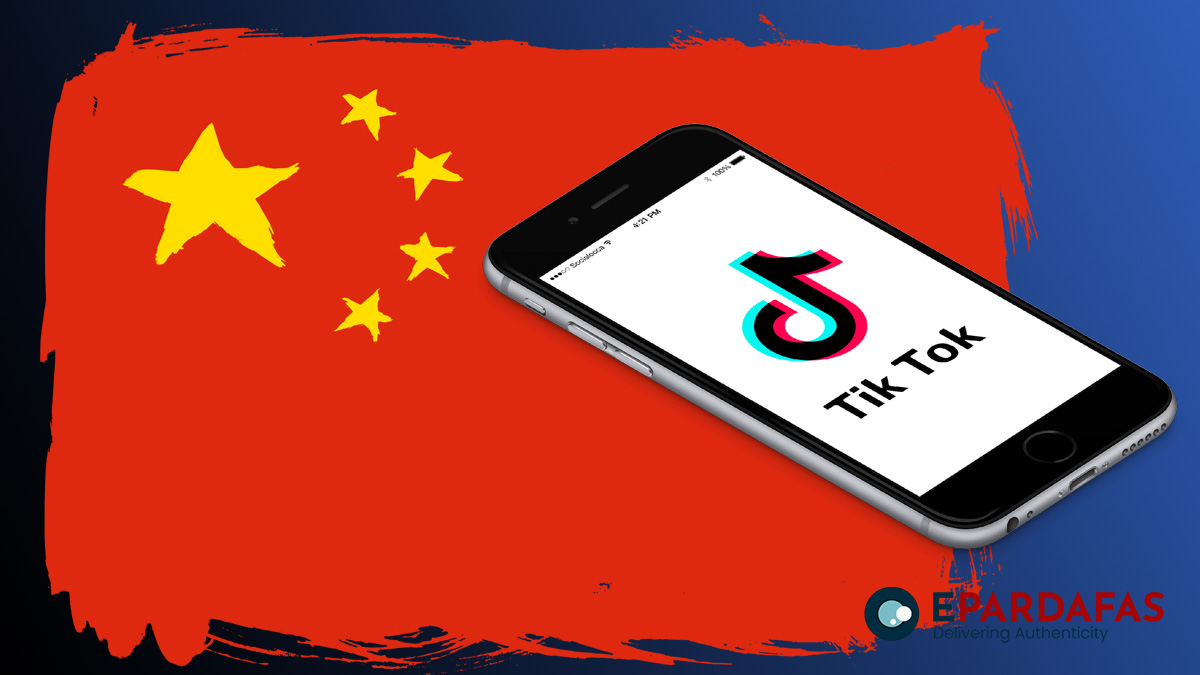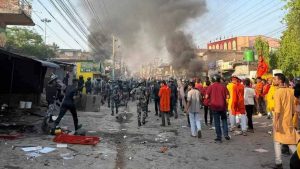The government has decided to close the Chinese social network TikTok after it started being misused as a means of spreading social disharmony and personal hatred. Due to the increase in cybercrime incidents related to TikTok, which is becoming popular among Nepalis, there was a debate about regulating it.
Last week, the Ministry of Home Affairs discussed its regulation with the Cyber Bureau, the Ministry of Home Affairs, and international representatives of TikTok.
After the discussion, Prime Minister Pushpa Kamal Dahal discussed social media regulation with the leaders of the ruling and major opposition parties. In the discussion, leaders, from the president of the main party Congress, Sher Bahadur Deuba, to the leader of the main opposition party, KP Sharma Oli, discussed the distortions brought about by TikTok in the meeting. The Prime Minister held the meeting with the aim of facilitating the issuance of guidelines on social media usage.
Following that meeting, the government decided to close TikTok from Monday’s cabinet meeting after receiving a common expression from the leaders of all parties that there is a need to regulate media that are spreading distortions in one way or another.
There have been two reactions to the government’s decision to shut down TikTok. Different opinions have been expressed on social networks regarding this decision. Congress General Secretary Gagan Thapa has responded that the shutdown is the opposite of the government’s approach. Some have even said that this decision is right. Those who argue against the shutdown have pointed to the right to freedom of expression. However, the government is of the opinion that the exercise of freedom of expression should not lead to chaos.
According to Communications Minister Rekha Sharma, although freedom of expression is a basic right, the government has decided to shut down TikTok because of the increasing tendency for users to say whatever they want without restraint.
According to statistics, 1,648 cybercrime complaints have been registered with the Nepal Police within the last 4 years and 3 months, most of which are related to TikTok.
According to a news report, cybercriminal activities using TikTok have increased rapidly in recent times. According to the central data of the Cyber Bureau, in 2076/77, there were only 4 complaints of cybercrime, and within a year, that number reached 70.
233 complaints were registered in 2078/79, 721 in the next year, and 620 in three months of 2080/81. In the last 4 years and 3 months, 1,648 cybercrime complaints have been registered. Most of the cyber cases are related to TikTok. In this way, as the complaints were increasing, the abuse of social media, including TikTok, was causing increasing incidents of hatred, obscenity, and character assassination in society, which was giving the government a headache.
TikTok has no mechanism to automatically remove defamatory content, and users can create fake accounts to engage in inappropriate activities. Research has shown that TikTok encourages users to spend hours playing it worldwide because it sets an algorithm to display endless videos according to the user’s interests on the mobile screen. Psychiatrists say that this has caused an outbreak of mental diseases like insomnia, anxiety, and depression in general.
According to psychiatrist Karuna Kunwar, the number of people seeking psychiatric counseling after using TikTok has increased rapidly.
The decision to shut down TikTok in Nepal on Monday is not new in other countries as well. Other big countries have partially or completely closed this social network, which has become famous worldwide. Neighboring countries like India and Afghanistan have banned TikTok. Many big democratic countries that are staunch advocates of freedom of speech, such as the United States, France, Canada, and the United Kingdom, have also banned the use of TikTok. Some countries have closed it due to concerns about the breach of government privacy, national security, and data security.
Western countries, including the US, are concerned that the Chinese government has gained access to sensitive information through TikTok.
TikTok has recently created a local cyberspace after the United States banned the transfer of citizen details of its TikTok users outside the country.
Some countries where TikTok is banned:
India:
India imposed a nationwide ban on TikTok and 58 other Chinese apps in 2020 due to activities that adversely affected its sovereignty and integrity, as well as concerns related to defense, state security, and public order. The ban was implemented following a clash between Indian and Chinese troops in the border area.
Afghanistan:
The Taliban banned TikTok in April 2022, citing its incompatibility with Islamic law.
Australia:
Australia banned the TikTok app from all devices owned by the federal government, citing security concerns raised by the Department of Home Affairs.
Belgium:
Belgium has prohibited TikTok on phones used by government officials.
Canada:
Canada banned TikTok on all government mobile devices in February of the current year, citing privacy and security risks associated with the app.
Denmark:
Denmark’s defense ministry prohibited employees from downloading TikTok on their work devices in March of the previous year.
New Zealand:
The New Zealand Parliament banned TikTok on all employee devices.
Norway:
The Norwegian Parliament has banned TikTok from government devices.
European Union:
The EU bodies—European Parliament, European Commission, and EU Council—have banned their employees from using TikTok on institutional and personal devices.
France:
France has restricted the recreational use of social media apps, including TikTok, on government employees’ phones due to data security concerns.
United Kingdom:
Britain has banned the use of TikTok on mobile phones used by government ministers and civil servants.
United States:
The US has banned TikTok on government devices.
Taiwan:
Taiwan implemented a complete ban on TikTok in December 2022.














Comments